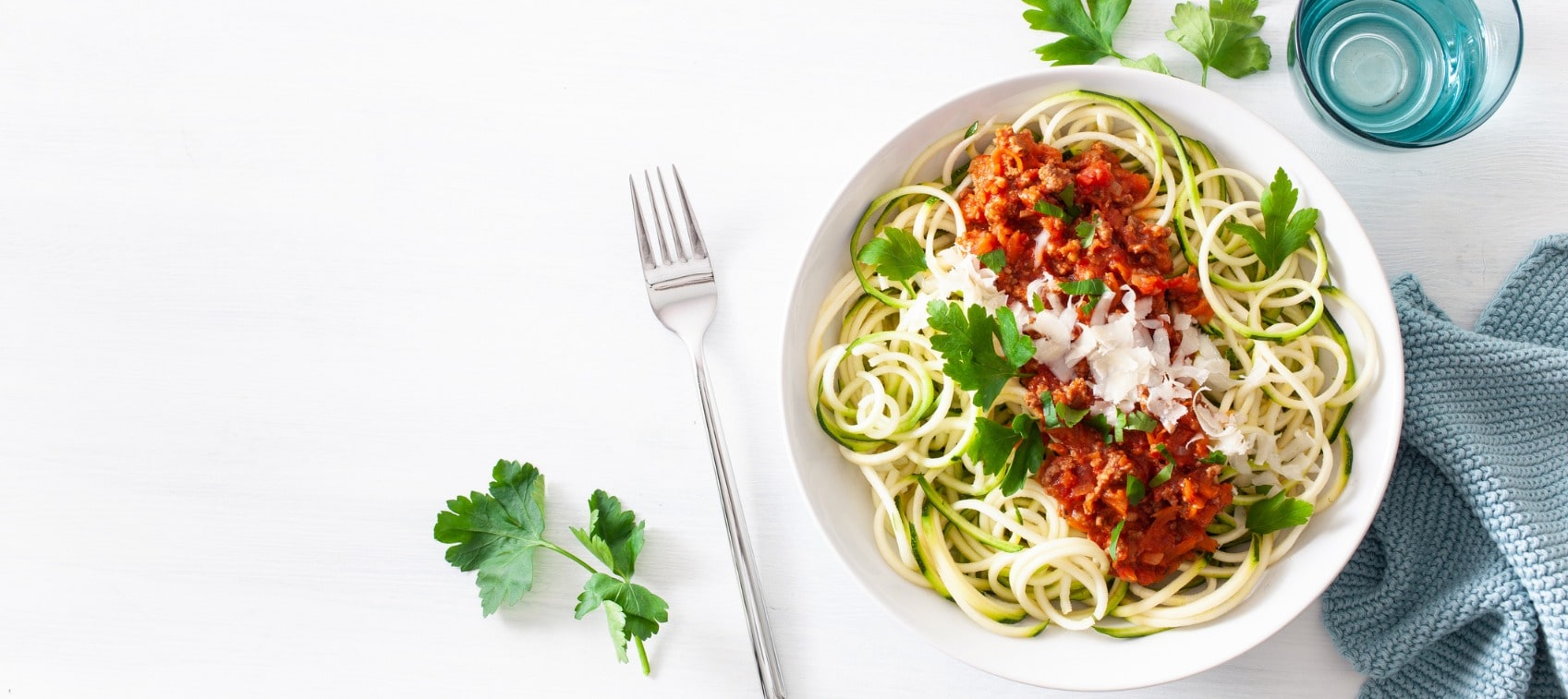
Often when I am supporting a patient who reports bloating as a digestive complaint, they say their stomach is flattest in the morning and progressively distends throughout the day. It may get noticeably worse following a meal, but it can be tricky for them to narrow down the exact cause.
Bloating is a common digestive complaint. Sometimes bloating can be an indicator of a more serious health condition that needs to be investigated further by your doctor and other times it can be relieved by something as simple as adjusting your diet.
Everyone’s digestion is unique! Name almost any food, and I could probably rationalize why it has the potential to cause digestive distress for someone. However, when investigating the bloating culprit, there are typically 5 food-related causes I am considering, as well as some foods that tend to be more common offenders.
7 Possible Reasons You’re Bloating After Meals
1. An Enzyme Deficiency
- Lactose intolerance (a deficiency of the enzyme lactase that breaks down lactose, the sugar in dairy)
- Pancreatic enzyme insufficiency or hydrochloric acid deficiency (may be seen in conditions such as hypothyroidism)
2. Food Allergies/Sensitivities
- A common symptom of food allergies or sensitivities is bloating. The top 7 allergens to consider include:
- Wheat and gluten-containing grains (within this it is important to rule out celiac disease, an autoimmune reaction to gluten that can also cause bloating)
- Eggs
- Nuts
- Corn
- Soy
- Citrus
- Dairy (in addition to the sugar lactose, people can react to the proteins, casein, and whey)
3. High Fiber Foods
- Common culprits are beans and lentils
- Fiber rich foods feed intestinal bacteria, which is health promoting but can create bloating in some (more on this below)
4. High Sugar Foods
- Simple sugar (sucrose) or high sugar fruits (fructose) can also feed intestinal bacteria and lead to bloating
5. Artificial Sugars and Sugar Substitutes
- Sugar alcohols such as mannitol, erythritol, sorbitol, xylitol, etc. are less absorbed than sugar, meaning they don’t raise your blood sugar as much as sugar. When they are consumed in high amounts, as they move through your gut they can have an osmotic effect that brings water into the intestines leading to bloating and diarrhea.
6. Carbonated Beverages
- If you drink something with gas bubbles, especially in large quantities, it can create gas bubbles inside your digestive tract as well; this can cause bloating, so be careful not to overdo it!
7. Cruciferous Vegetables
- Cabbage, broccoli, Brussels sprouts, etc., are amazing immune supportive and antioxidant-rich foods, yet for some folks can cause bloating and gas production.
Diets such as the Paleo Diet, Anti-inflammatory Diet, Whole 30 Diet, and Keto Diet, have all gained popularity in recent years. Many people tell me they feel lighter, have more energy, and report a reduction in gastrointestinal symptoms on these diets—especially less bloating!
The common thread of these diets is that they take out added sugar and sweets, dairy, gluten-containing grains (including wheat), simple carbohydrates (breads, pastas, cereals) and (in some cases) grains altogether as well as beans and lentils.
Why simple carbohydrates, refined sugars, beans and lentils contribute to intestinal bloating in some people often has to do with the health of their intestinal system and the presence of an imbalance within their gut between the good and bad bacteria that reside there.
5 Meal Suggestions that Won't Make You Bloated
If you are curious to see if making some minor adjustments can help you reduce your post-meal discomfort and leave you feeling satisfied but lighter after a meal, give these meal options a whirl!
1. A Lighter Alternative Pasta
Substitute grain carbohydrate noodles for a vegetable noodle such as one made from spaghetti squash or spiraled zucchini. Add to your favorite pasta sauce with extra sautéed veggies (celery, carrots, onion) and your favorite ground meat. The result is delicious, nutritious, and bloat free!
2. Greens (with Eggs) for Breakfast
Eggs for breakfast can feel heavy when you combine them with toast or potatoes. At home, or eating out at a restaurant, instead of a piece of toast, put your fried or poached egg over a bed of greens. You can also mix the greens into a scramble.
Additionally, for a gluten-free option without just substituting in GF bread, I like to cut a round of organic polenta and fry it lightly in avocado or coconut oil, add sautéed collard greens, and add a fried or poached egg overtop.
Add a sauerkraut digestive aid:
I am used to eating fermented foods so having some sauerkraut on top of my eggs is delicious and does not give me digestive upset! If this flavor combination is not yet in your repertoire but you know you do ok with fermented foods, give it a try! Sauerkraut has natural probiotics and is great for your gut health.
3. The Better Burger Wrap
Burgers are common summer BBQ fare! If you are like me, the bun often takes this meal over the top with the extra doughy filling plus gluten if you are sensitive to it. To avoid this, skip the bun and instead try wrapping your burger in a collard green or piece of lettuce. When using collard greens, it often helps to remove the stem, or you can quickly blanch them in a pot of hot water to soften the greens up and make them more malleable for easier wrapping
4. The Meat Roll-up (a Sandwich Alternative)
Instead of two pieces of bread holding your sandwich contents together, decrease the carbs and increase the protein by rolling up organic, nitrate-free deli meats (turkey, ham, beef, salami)! Use delicious, healthy fillings inside your roll-up such as:
- Avocado
- Lettuce
- Tomato
- Shredded Carrots
- Strip of bacon (for an extra meaty crunch!)
You can even include condiments like mustard,hummus, pesto, etc.
5. The Grain-Free Fruit-Sweetened Muffin
If you want a grain-free, dairy-free, almond flour muffin with banana and dates as sweeteners instead of refined sugar—look no further! I’ll happily serve this muffin for breakfast with a smoothie or pack it in my children's lunch for a completely guilt-free snack! Here’s the recipe:
INGREDIENTS:
- 2 cups almond flour
- 2 teaspoons baking soda
- 1 teaspoon sea salt
- 1 tablespoon cinnamon
- 1 cup dates, pitted
- 3 ripe bananas
- 3 large eggs
- 1 teaspoon apple cider vinegar
- 1/4 cup coconut oil, melted
- 1 1/2 cups of shredded carrot
- 3/4 cup walnuts, finely chopped
- 1 package paper muffin liners
INSTRUCTIONS:
- Preheat oven to 350 F.
- In a large bowl, combine flour, baking soda, salt and cinnamon.
- In a food processor, combine dates, bananas, eggs, vinegar and oil.
- Add mixture from food processor to dry mixture in the large bowl and combine thoroughly.
- Fold in carrots and nuts.
- Spoon mixture into paper-lined muffin tins.
- Bake at 350 F for 25-30 minutes.
Techniques to Decrease Post-Meal Bloating
In addition to ruling out the dietary causes above, there are “meal-hygiene techniques” that can provide additional bloating relief:
- Stop multitasking when it is time to eat. Make eating your priority and put aside your phone or other “work.”
- After eating, take a deep breath and allow your body to “rest and digest.”
- Smell your food before eating to stimulate your digestive system.
- Chew your food well to assist with mechanical digestion and stimulate the release of additional digestive enzymes.
- Don’t drink too much water during meal time as this can dilute your digestive juices.
- Avoid ice and cold foods as they can mess with your digestion process. Warming your food and avoiding cold veggies or drinks can be helpful.


